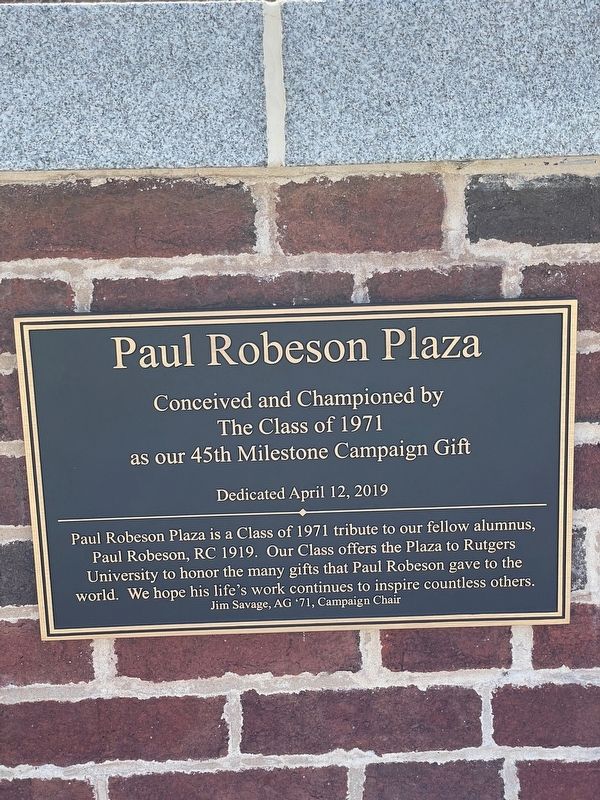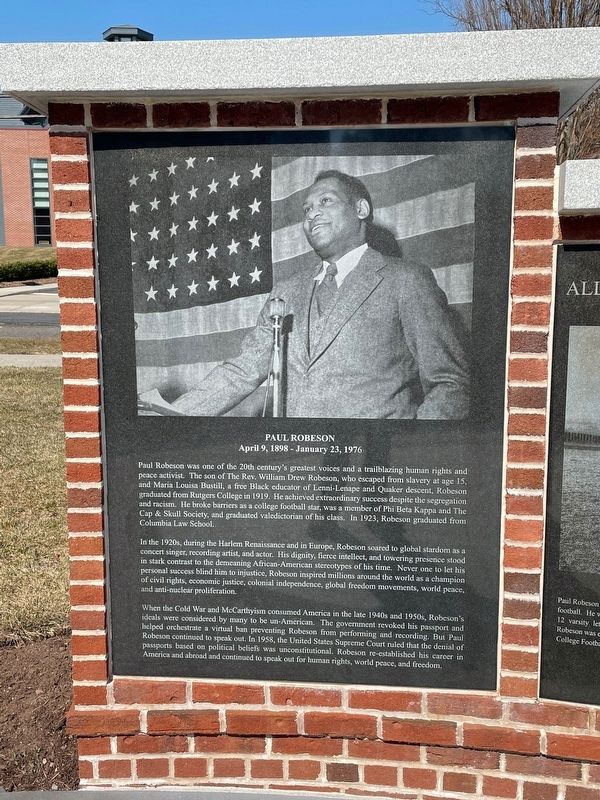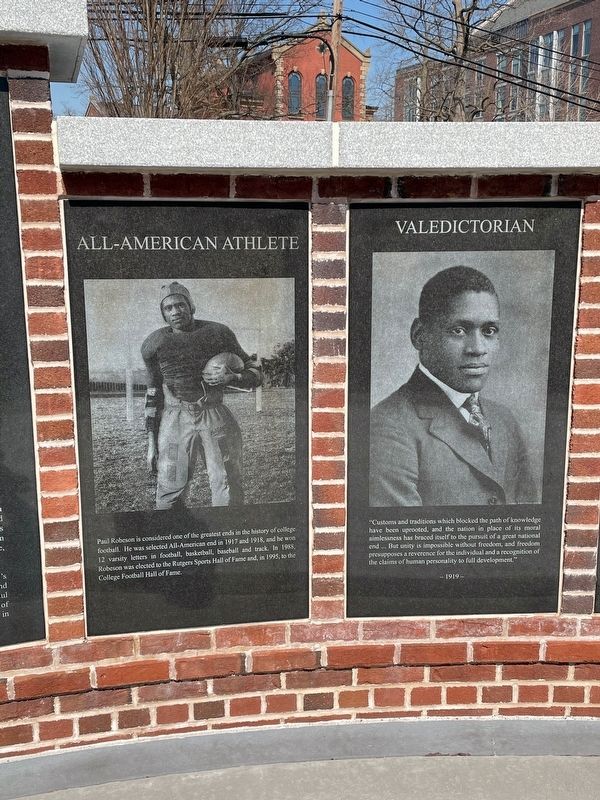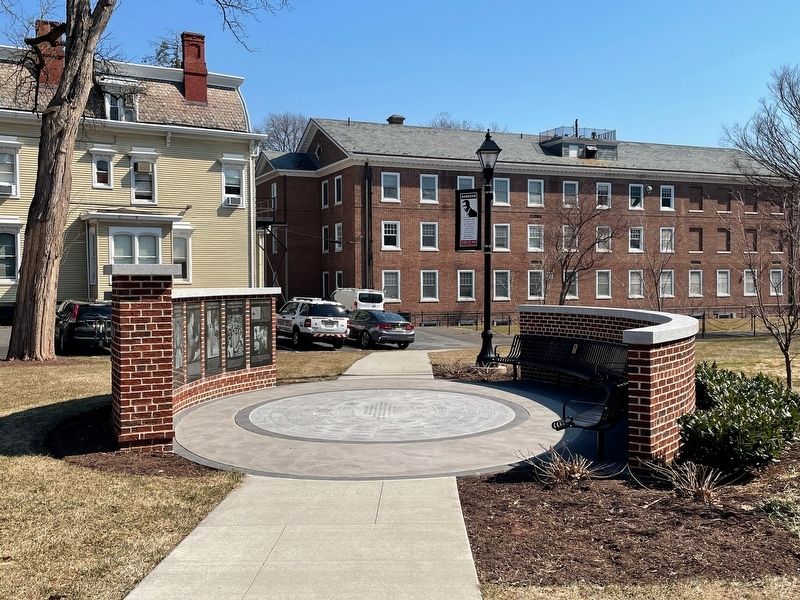New Brunswick in Middlesex County, New Jersey — The American Northeast (Mid-Atlantic)
Paul Robeson
April 9, 1898 - January 23, 1976
Paul Robeson was one of the 20th century's greatest voices and trailblazing human rights and peace activist. The son of The Rev. William Drew Robeson, who escaped from slavery at the age of 15, and Maria Louisa Bustill, a free Black educator of Lenni-Lenape and Quaker descent, Robeson graduated from Rutgers College in 1919. He achieved extraordinary success despite the segregation and racism. He broke barriers as a college football star, was a member of Phi Beta Kappa, and The Cap & Skull Society, and graduated valedictorian of his class. In 1923, Robeson graduated from Columbia Law School.
In the 1920s, during the Harlem Renaissance and in Europe, Robeson soared to global stardom as a concert singer, recording artist, and actor. His dignity, fierce intellect, and towering presences stood in stark contrast to the demeaning African-American stereotypes of his time. Never one to let his personal success blind him to injustice, Robeson inspired millions around the world as a champion of civil rights, economic justice, colonial independence, global freedom of movement, world peace, and anti-nuclear proliferation.
When the Cold War and McCarthyism consumed America in the late 1940s and 1950s, Robeson's ideals were considered by many to be un-American. The government revoked his passport and helped orchestrate a virtual ban
on preventing Robeson from performing and recording. But Pal Robeson continued to speak out. In 1958, the United States Supreme Court ruled that the denial of passports based on political beliefs was unconstitutional. Robeson re-established his career in American and abroad and continued to speak out for human rights, world peace, and freedom.Erected 2019.
Topics and series. This historical marker is listed in these topic lists: African Americans • Arts, Letters, Music • Civil Rights • Education. In addition, it is included in the Quakerism series list. A significant historical year for this entry is 1919.
Location. 40° 30.083′ N, 74° 26.944′ W. Marker is in New Brunswick, New Jersey, in Middlesex County. Marker can be reached from Seminary Place just north of College Avenue, on the left when traveling north. The marker lies off of Seminary Road behind Ford Hall. Touch for map. Marker is at or near this postal address: 21 Seminary Pl, New Brunswick NJ 08901, United States of America. Touch for directions.
Other nearby markers. At least 8 other markers are within walking distance of this marker. The Reformed Dutch Church founded Queens College (within shouting distance of this marker); On This High Ground (about 300 feet away, measured in a direct line); New Brunswick and the American Revolution / Crossroads of the American Revolution (about 600 feet away); Gray Terrace (approx. 0.2 miles away); Frelinghuysen Hall (approx. 0.2 miles away); Will’s Way (approx. 0.2 miles away); Hardenbergh Hall (approx. 0.2 miles away); First Constitutional Convention in New Jersey (approx. ¼ mile away). Touch for a list and map of all markers in New Brunswick.
Credits. This page was last revised on March 15, 2021. It was originally submitted on March 15, 2021, by David Weintraub of Edison, New Jersey. This page has been viewed 179 times since then and 17 times this year. Photos: 1, 2, 3, 4. submitted on March 15, 2021, by David Weintraub of Edison, New Jersey. • Devry Becker Jones was the editor who published this page.



